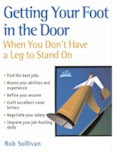When I wrote The Living Eulogy for Harry Wilson, I had no idea it would resonate with so many people. I never expected the flood of emails and comments from friends and strangers alike. Some shared a desire to honor their own friends in a similar fashion. Others thanked me for introducing them to such a wonderful artist. The whole experience was incredibly heartwarming.
It was also challenging because it made me think about the logistical difficulties of acknowledging all the important people in my life. With two parents, 3 brothers, 2 sisters, countless relatives, and friends from all over the world, the prospect of doing living eulogies for everyone is more than a bit daunting.
Even as I wrote the piece for Harry, I found myself thinking about the other people in my life and what I might say about them. What I did not expect, however, was that the post would become a political issue of sorts. This was especially surprising because I almost never discuss politics with anyone. Although I have opinions, I rarely share them because politics is so polarizing.
Shortly after I posted the Living Eulogy, I received an email from Betsy, a high school classmate now living in California. When she clicked on the blog, Betsy was shocked—and rightfully so—to see a Google ad supporting a ban on gay marriage. As we sorted out what happened, we both realized that the ad forced us to examine the stories we tell ourselves about certain events and the motivations of the people involved.
Under the circumstances, I need to break my self-imposed rule of not discussing political issues to address the concerns this ad has raised. I am grateful to Betsy for sharing her viewpoint because I had no idea the ad was on the site. I DO NOT support discrimination of any kind; nor do I support a ban on gay marriage. I sincerely apologize to anyone who was offended by the ad.
What Happened?
When I signed up for Google Ads, my understanding was that Google would rotate non-competitive, business-related ads on the site. I never imagined Google would put a political ad of any kind on my page, let alone one on such a controversial issue. As Betsy and I discussed it later, we suspect that Google picked up on my reference to marriage in the Living Eulogy and used that keyword to target the ad.
Questioning The Motivations
Since I own the blog and post the content, Betsy reasonably assumed I knew about the ad. However, since I am based in Chicago, and the ad was targeting California voters, I would never have seen or heard about the ad had it not been for Betsy.
Given her strong feelings on the issue, Betsy was upset and confused at the thought that I supported a ban on gay marriage. This prompted a flood of emotions that caused her to question my intentions and motivations. Fortunately for me, she decided to share her concerns rather than stew in her own feelings. This gave us both a unique opportunity to think more deeply about the meaning we assign to the events in our lives.
Questioning Google
When Betsy alerted me to the issue, I immediately called the customer service people at Google to let them know I wanted the ad removed immediately. Google ads, as you may know, are rotated continuously. Since the election was almost over, the Google rep said it was unlikely the ad would reappear. Nevertheless, I wanted some assurance that political ads would never again appear on the site under any circumstances.
This proved to be an illuminating situation for me because it forced me to look at my own interpretation of the events. On the one hand, I was legitimately upset to have been thrust unknowingly into a heated issue that made it appear I supported discriminatory anti-gay policies. At the same time, there were a few questions I needed to consider as I forced myself to be somewhat objective about the situation:
Did I have a right to be upset with Google?
Absolutely. I firmly believe Google needs to make it easier for people like me to identify and block controversial ads—political or otherwise. From a freedom of speech standpoint, I support the right of these groups to advertise. At the same time, I want Google to be more careful about where the ads appear.
What was I making this mean?
Much of my initial anger was based on my view of Google as a money-hungry enterprise that cares more about paid clicks than it does about the feelings of its partner sites. That may be true, but it carries with it the assumption that human beings are behind the scenes consciously screening and placing ads. The reality, I’m sure, is a bit different. When I really thought about it, I was forced to conclude that Google probably has the process almost, if not completely, automated. As a result, it is possible that no one was ever in a position to evaluate the appropriateness of the ad content relative to its placement.
Whatever the case, this is an issue Google needs to address. In the meantime, it doesn’t make sense for me to get angry and upset at the software running behind the scenes. That would be like getting angry at a rock. I am better served by recognizing that Google systems are run by humans and humans make mistakes. When we make mistakes or do something to offend someone else, the best we can hope is that some caring person will point it out and enable us to take corrective action. That’s what Betsy did for me. And that’s my approach with Google as well.
Saturday, November 22, 2008
Subscribe to:
Post Comments (Atom)

.jpg)
No comments:
Post a Comment